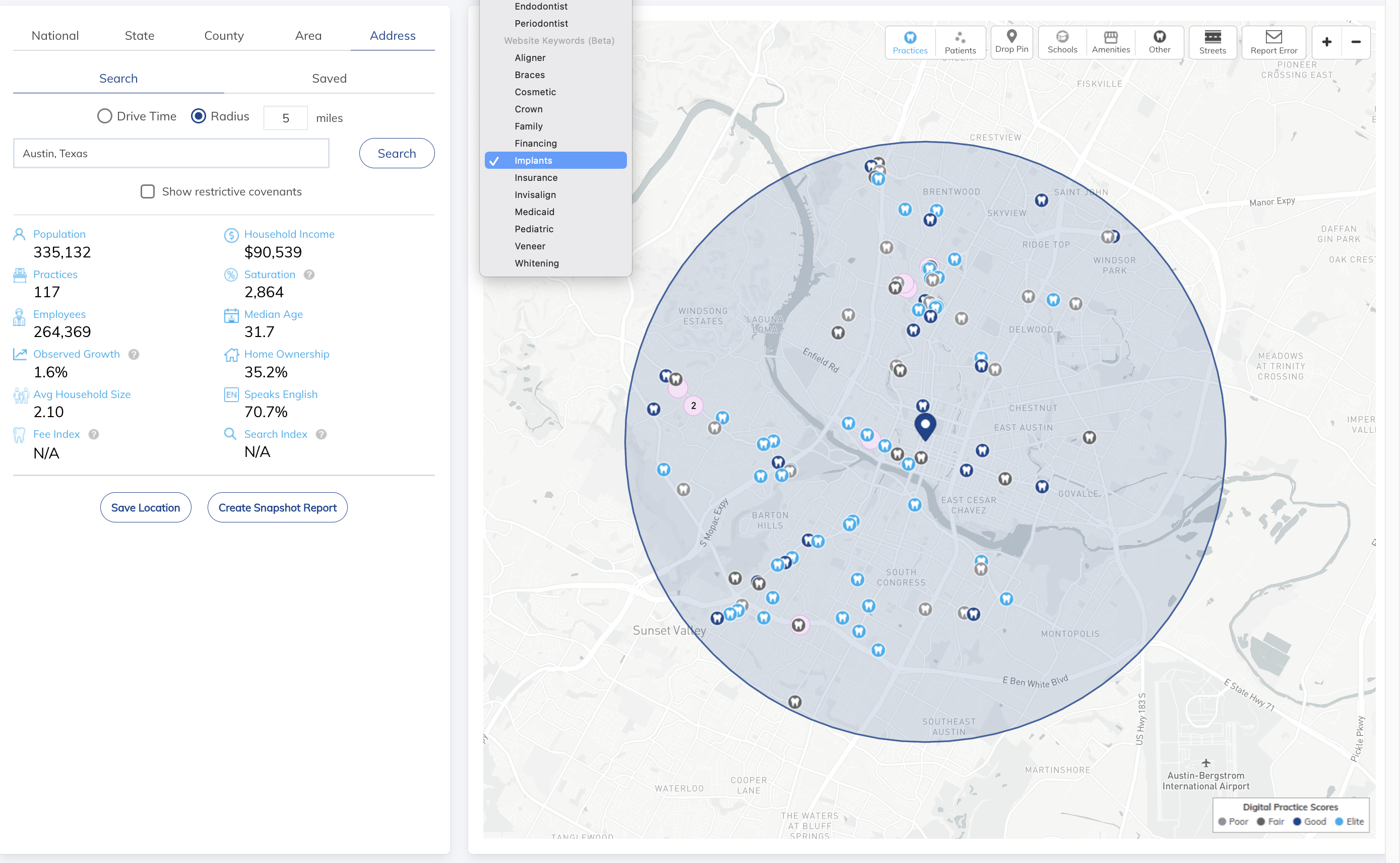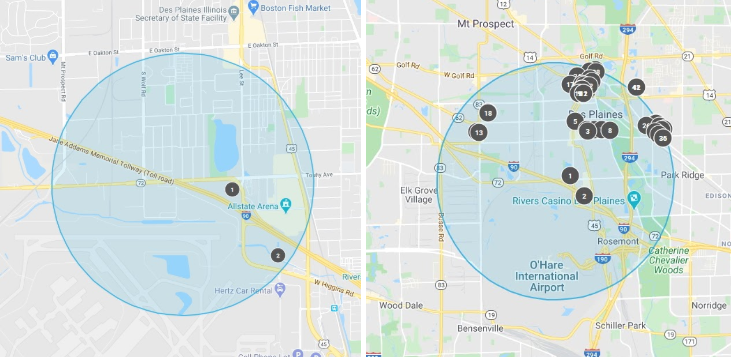In this increasingly mobile age, dentists are always looking for the best places to practice. Among other factors like weather, cost-of-living and proximity to friends and family, the level of competition often comes to mind when conducting research. So, at the beginning of 2023, which areas of the country are the most competitive for dentists and which are the least?
Before we get started, we want to note that each of these metro areas is comprised of multiple sub-markets and that conditions can vary greatly within a region. But if you’re throwing a dart at a map of each of these cities, the bullseye might be a bit larger in some markets than others.
Methodology
As developers of a database of privately-owned dental practices which have been manually-verified by our in-house research team, we are uniquely qualified to answer this question. Note that this article only analyzes the nation’s three hundred and fifty-four metropolitan areas with total populations of between fifty thousand and one million residents. If you’re not familiar with what a metropolitan area is, it includes both a central city like Indianapolis as well as its suburban markets like Carmel. If you’re interested in either a smaller or bigger city, check out our lists of the Most and Least Competitive Big Cities and Most and Least Competitive Medium-sized Cities.
The Ten Most Competitive Small Cities to be a Dentist

The Ten Least Competitive Small Cities to be a Dentist

Findings
If you're looking for patterns, this is about as easy as it gets. Boulder, Colorado and Napa, California sure are different from Brownsville, Texas and Pine Bluff, Arkansas. Thirteen of the fourteen most competitive cities (the lone exception being Columbus, Indiana) report household income levels in the top ten 10% of small metro areas. At the other end of the spectrum, seven of the fifteen least competitive small metro areas offer household income levels in the bottom 10%.
The Best Small Cities to be a Dentist
Dover, Delaware: The Greater Dover area is home to more than 7,000 residents per general dental office, is growing rapidly and reports household income levels of about $75,000. But don't fret if you don't have a license to practice in Delaware (they're not easy to come by!).
Salisbury, Maryland and Greeley, Colorado also perform well across the board.
The Worst Small Cities to be a Dentist
Charleston, West Virginia: The Charleston area is home to only 2,889 residents per general dental office. In addition, it has seen a population decline of almost 10% since the 2010 Census. The median household in the area annually earns a little over $55,000.
Muncie, Indiana, and Erie, Pennsylvania similarly rate as more competitive small cities in which to practice while also reporting population losses and modest income levels.
Pine Bluff, Arkansas is a unique standout and, despite being home to over 8,500 residents per general dental office, is not recommended due to massive population decline and low income levels.






.png)